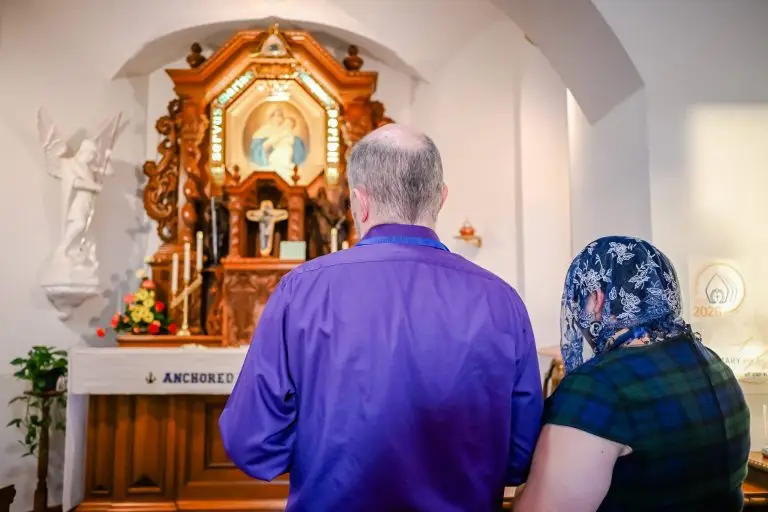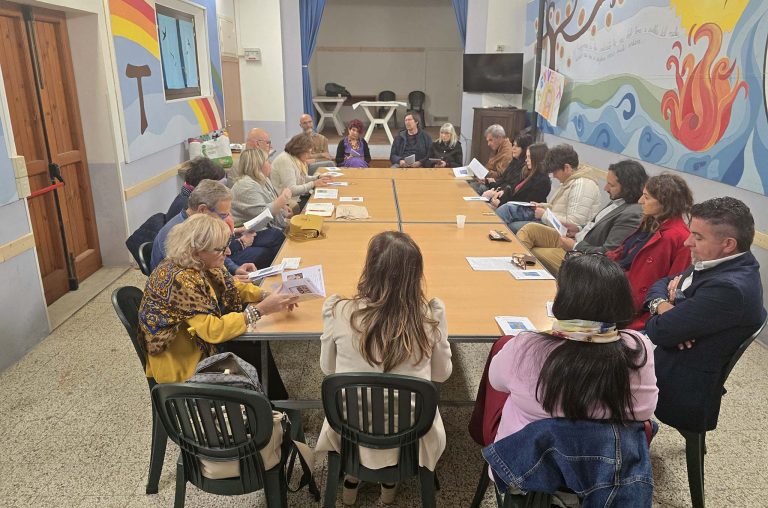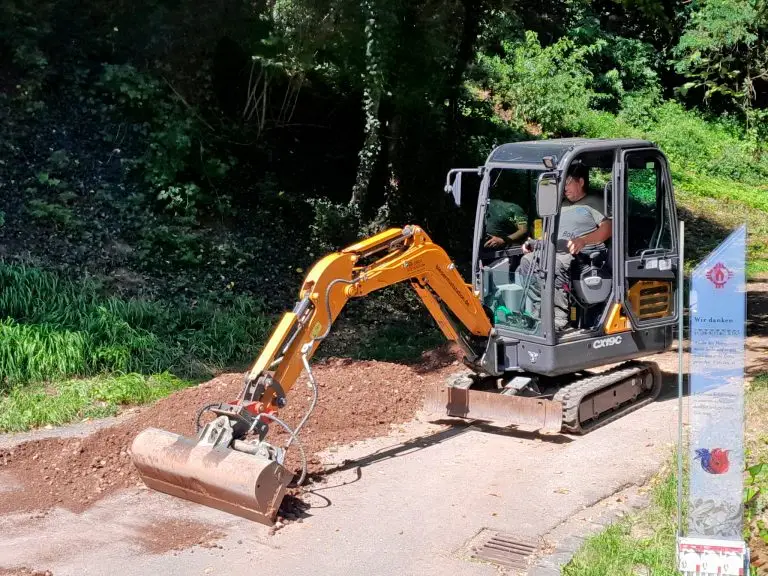Interview about the relation between the apostolic exhortation Amoris Laetitia and Schoenstatt’s pedagogy with practical advice for family life
Schoenstatt International interviewed Father Alexandre Awi Mello, secretary of the Dicastery for Laity, Family and Life, along with the Ghelardis, a couple belonging to Brazil’s Family Federation, within the framework of the Marathon for the Original Shrine, to delve into the Year of the Family Amoris Laetitia and the practical ways of applying Schoenstatt’s pedagogy in family life.
Year of the Family Amoris Laetitia
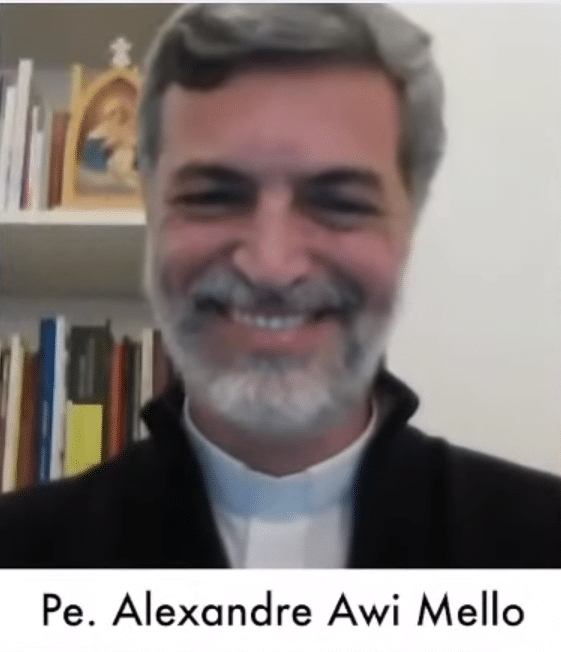
Father Alexandre Awi Mello, secretary of the Dicastery for Laity, Family and Life and the Ghelardis from Brazil’s Family Federation, were interviewed on May 15 at the Original Shrine by the Brazilian communicator Otávio Cezarini Ávila. The topic covered was the Year of the Family Amoris Laetitia.
Regarding this topic, Father Alexandre remarked that, five years after the publication of the apostolic exhortation Amoris Laetitia, Pope Francis wanted to know if the Church has adopted this reflection which centers on highlighting the beauty of the conjugal vocation and life. “It’s about an opportunity to revive the Church’s careful view of the family, with an invitation for families themselves to be protagonists at this time”, he said.
“The Dicastery for Laity, Family and Life is planning this Year of the Family Amoris Laetitia with several initiatives. Among them, the publication of a monthly video reflecting on each chapter of the exhortation, with a message from the Pope”, added Father Alexandre.
Father Alexandre told us about the existence of another initiative: the first World Day for the Grandparents and the Elderly, which will take place on the fourth Sunday of July, close to the feast of Saints Joachim and Anne, Jesus’ grandparents, that is celebrated each year.
For further information about these initiatives and others go to: www.amorislaetitia.va.
Schoenstatt’s pedagogy and the Year of Amoris Laetitia
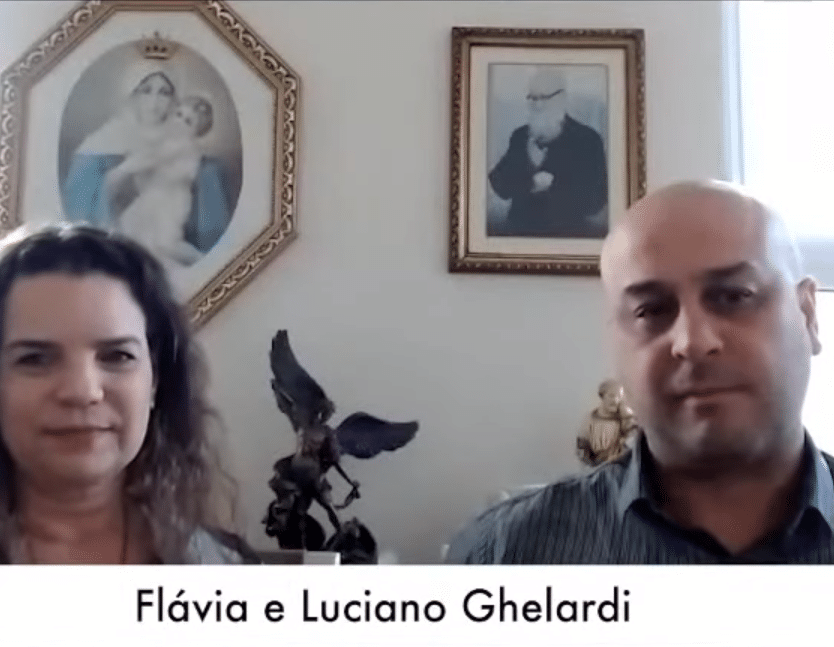
When asked about how we can relate Schoenstatt’s pedagogy with the Year of Amoris Laetitia, Father Awi Mello reminds us that “Schoenstatt is a family and within the Schoenstatt Movement we understand family as a whole, there is room for every state of life and for every age. When we talk about family, we are talking not only of couples, as in other movements. In Schoenstatt every family member should feel embraced.”
Finally, Father Alexandre recalled that “in the October 2016 Congress (which is held nationally in Brazil, with the same theme, in different cities) a relation was drawn between Amoris Laetitia and Schoenstatt pedagogy, and one of the things that can be highlighted is the pedagogy of the ideal that is mentioned in the exhortation, when the Pope states that we cannot diminish the ideal of the family, and that this must be presented emphatically to the youth, showing the beauty of that vocation”. And he concluded: “The Home Shrine is a way of embodying the domestic church, a topic that is present in the Pope’s text”.
Application of the pedagogy of trust and bonds in family life
Flavia and Luciano Ghelardi emphasized that children were entrusted by God to be raised in the family, so that one day they can reach heaven, and the pedagogy of trust helps parents to trust in the good that is within each child and in the fact that they will make good choices.
Flavia remarked that “it is important to cultivate a personal bond with each member of the family and one way to do this with the children is the ‘outing with mom’, in which once a week, the mother goes out to eat with one of the children to their favorite place, and spends time talking, reinforcing the bond, sharing projects, difficulties, joys. It’s a time when the mother can also tell her story, the family’s history.”
Luciano adds that “another practice that helps to strengthen the bond with God and with the family is the night prayer in the Home Shrine, all together, sharing a little about how each one’s day went, giving thanks and making petitions”.
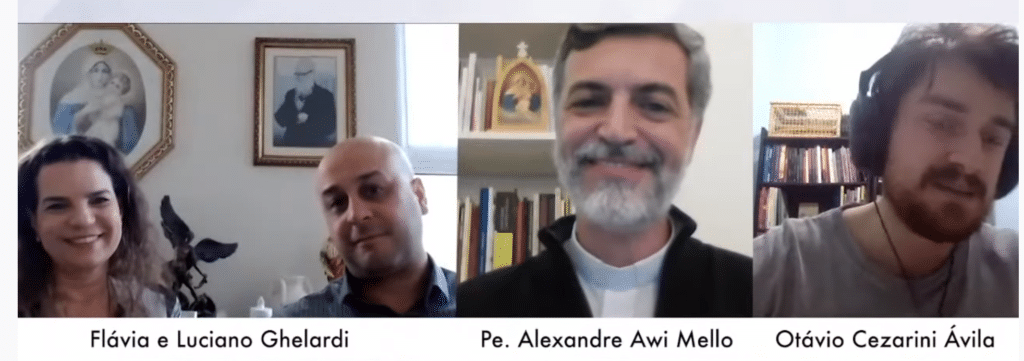
Schoenstatt’s response to the challenges of today’s family
Regarding the challenges of the family in today’s world, Luciano believes that “there are many challenges, among them finding the meaning of this life”, and expresses that “Schoenstatt can respond especially with the Personal Ideal, which makes us know that each one is loved by God from all eternity and has a mission to fulfill in this world. The Movement offers practical ways to discover this ideal”.
Complementing this idea, Flavia explains that “another response that Schoenstatt can give is through practical faith in Divine Providence, which takes a look at every event, big or small, knowing that God the Father has a loving plan that governs everything and expects a loving response from us. The way to discover what is God’s plan behind each event is through the meditation of daily life as taught by our Founding Father, which consists of taking a few minutes during the day, choosing an event from the previous day and, with the Holy Spirit’s light, ask yourself three questions: 1) What does God want to tell me with this? 2) What do I tell myself? 3) What do I answer to God?”
And synthesizing Schoenstatt’s contribution, Flavia expressed that “in the Home Shrine, the true heart of the home, the same graces flow as from the Original Shrine and from the daughter shrines; and the family is nourished there to be able to face all the challenges.”
You may watch the full interview here.

